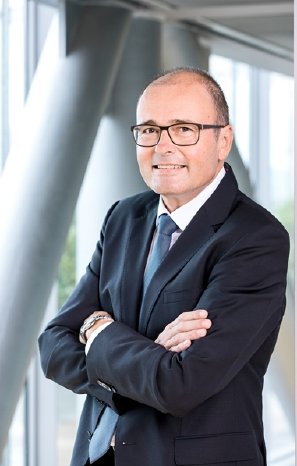Again this year we have put together an interesting and highly diverse program for you. We are greatly looking forward to our opening and keynote speakers, who will be sharing their market assessments with us on March 20 and 21. This year we will be welcoming as keynote speakers:
- DI Christian Holzer (Federal Ministry of Sustainability and Tourism, Austria)
- Eric Hannon (McKinsey & Company, Germany) and
- Johann Prammer (voestalpine AG, Austria)
- Mr Prammer, at the IARC 2019 you will be speaking about current trends in terms of materials used in the steel industry. What are the main trends at the moment?
- The automotive industry is a key sales market for the steelmaking sector. Major carmakers are under pressure to reduce their carbon emissions and are thus looking to make their vehicles as light as possible. In view of this fact, how can steel assert itself against lightweight metals such as aluminium?
The new EU targets for CO2 reduction by 2030 for cars, buses and trucks are not only quite ambitious technically, but also in terms of time, considering the conventional product development and production cycles of average models. We are helping to achieve this goal, for example, by developing high-strength steels and components made of light metal alloys. Moreover, we are working intensively on solutions for alternative drive systems such as electric mobility, for example by developing special electrical steel for motors or materials for making batteries.
Despite being practically declared dead as a carmaking material not so long ago, steel will continue to play a key role going forward. Every material has its strong points, and competition between materials stimulates innovation.
- How do you rate approaches such as Circular Economy or Life Cycle Assessment in this context?
For example, the automotive industry has been the most important driver of the LCA, and in the overall life cycle analysis we see considerable advantages in the assessment of steel compared with other materials, such as its carbon footprint over the entire life cycle, energy consumption in production and reuse in production – specifically as scrap for making crude steel. At more than 25%, voestalpine uses an above-average share in its production process compared with the EU average (19%) or even China (10%), not to forget its practically infinite recyclability.
- What is your impression regarding the role that the recyclability of materials currently plays in the automotive industry?
When scrap metals are typically recycled, up to 100% of the car body steel gets used. This is where the greatest amount of recyclates are to be found – in new vehicles, too. Because these are already integrated in the production of new steels in the form of "processed scrap", car manufacturers no longer have to worry about them. However, with plastics it's a different story, as in contrast to steel and iron materials, plastic applications require separate testing and approval of the recycling material for each respective component.
Recyclable materials may even be superior to new ones, as they may be less prone to dimensional and shape changes. For example, certain components are manufactured using recycled plastics. However, there are limits to the amount of recycled material that can be built into a car. Safety-related components such as crash structures or airbag-related components are not made of recyclates. The materials exhibit a slightly greater variance in vibration behaviour and elongation at break, which must be compensated for by the use of additives or taken into account when the component is produced. That's why they are not so suitable for safety-related components.
- The steel industry is also under pressure to reduce its CO2 emissions. Is the expansion of electric steel mills an option, or are new technologies, such as hydrogen-based steel production, more likely to be used?
Thank you for the interview, Mr Prammer.
If you want to find out more about this topic and lots of others, too, please come to the IARC 2019 in Vienna. Don't miss this opportunity to exchange news and ideas with experts from every field of the automotive recycling sector. We look forward to welcoming you to this year's industry meeting. For all the details on the program and how to register, go to: https://www.icm.ch/iarc-2019.



